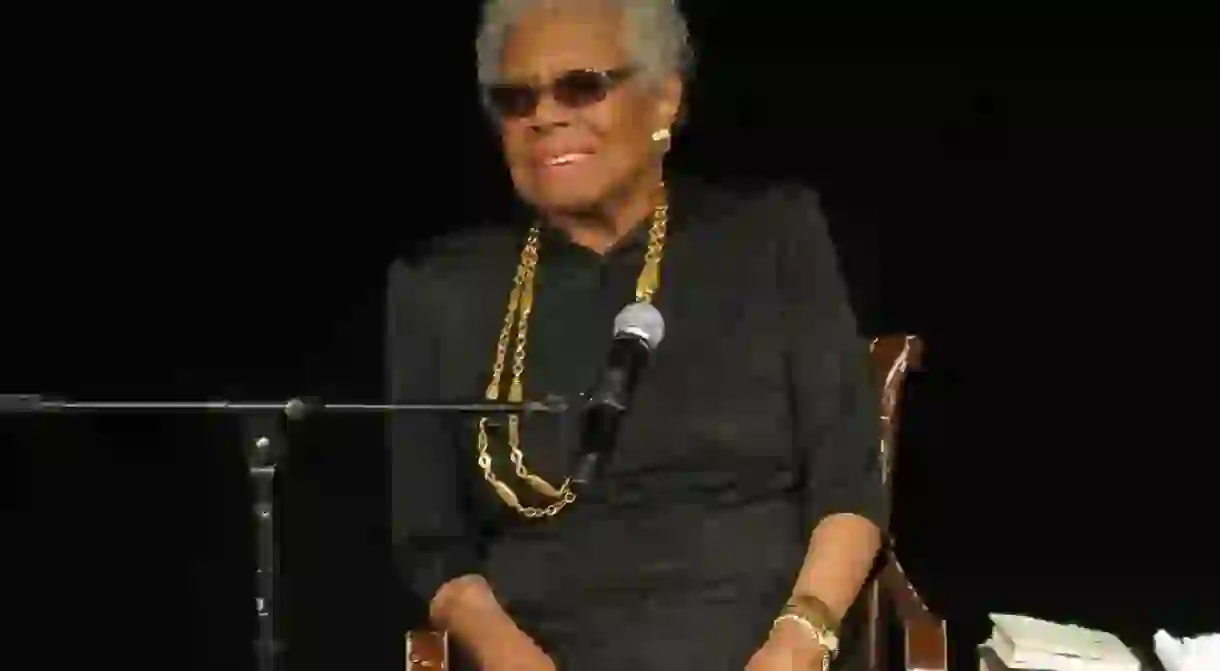10 Poems That Capture The 1970s In Austin, TX

With the creation of the ACL music program, the rise of Willie Nelson, the legalization of liquor, and a population growth of 40% in one decade, the ’70s in Austin were defined by artists, hippies, radicals, musicians, and free spirits. Though the decade was known for its friendly, laid-back culture, discrimination of Mexican-Americans was also at its peak. These ten poems capture Austin during this sensational time period.

‘I Am In Need Of Music’ by Elizabeth Bishop
As the music scene in Austin exploded in the 1970s, so did the number of youths flocking to the city for an opportunity to immerse themselves in the rhythm. In ‘I Am In Need Of Music,’ Bishop captures the strong and deeply felt emotions of those who came to Austin. She puts to words the same passion and desire to feel the music move throughout her soul and body that the young Austinites had at the time.
‘Constantly Risking Absurdity’ by Lawrence Ferlinghetti
Whether it be in the form of music, literature, or paintings, the ’70s in Austin were a decade of art. Due partly to the rapid influx of diversity throughout the city, the art of Austin took a sharp turn, creating a decade which many would later refer to as the one in which Austin became weird. ‘Constantly Risking Absurdity,’ by Lawrence Ferlinghetti, captures that same spirit of defying normality for the sake of art.

‘Stupid America’ by Abelardo Delgado
There were struggles to be endured for some before they were able to experience the cultural peak of community and happiness. To be more specific, the Chicanos, or Mexican-Americans, of Austin faced many hardships during the 1970s. As discrimination towards these people was rampant, Abelardo Delgado expressed his lack of respect for those who disrespected him for no reason other than his Mexican origins through his poem, ‘Stupid America.’ The raw emotions of the poem reflect that of many other Chicanos living in Austin at the time.
‘The Searchers’ by Tomas Rivera
The Chicano Literary Renaissance sparked the interest of Austinites after the publishing of Abelardo Delgado’s first work, 25 Pieces of a Chicano Mind (1969). The period of time that followed engendered in Chicanos a sense of confidence to express themselves, leading to a major increase of Mexican American poetry and art. Poems such as ‘The Searchers,’ by Tomas Rivera, embody the sense of loneliness and lack of acceptance Chicanos felt, despite their efforts to rid Austin, and Texas as a whole, of the cruel emotions that others had towards them.
‘For Some Slight I Can’t Quite Recall’ by Ross Gay and ‘Equality’ by Maya Angelou
In 1971, Austin’s academic institutions applied multiple anti-discrimination regulations that, although taken for granted, had a huge impact on the same culture that would later be known and loved for its ethnic diversity and eccentricity. The poem ‘For Some Slight I Can’t Quite Recall,’ by Ross Gay, captures the essence of childlike frustration and anger created among the students of Anderson High School and Kealing Middle School by the U.S. Federal District Court’s decision to close down the schools in order to desegregate Austin and prevent further spread of Mexican American discrimination. From the perspective of the Chicanos, the poem ‘Equality,’ by Maya Angelou encapsulates the emotions of hope and ambition for a future defined by equal educational, occupational, and financial opportunities.
‘Superfluities’ by Major Jackson and ‘Painting A Wave’ by Howard Moss
As 1970 was the year in which liquor was made legal in Austin, it also, not coincidentally, marked the beginning of what would be a decade full of substance abuse and, for many locals, an almost constant state of skewed perspective. Some might argue that the health of Austinites suffered tremendously, but many more would describe those ecstatic feelings as consciousness-opening. Poet Major Jackson, in ‘Superfluities,’ describes the sensations which many felt during this time. The twisted vision experienced by many allowed for the creation of some of the most bold and creative art, as described in ‘Painting A Wave,’ by Howard Moss, who elaborates on the somewhat magical experience of painting.
‘Human Family’ by Maya Angelou
Due to the increasing popularity and growing reputation of Austin as a hub for live music and groovy vibes, many aspiring artists, musicians, writers, and travelers rushed in. From 1970 to 1979, the population of Austin grew almost 40%. As the number of Austinites grew, so did the variety within the city. In ‘Human Family,’ Maya Angelou captures the beauty of diversity, which was a common theme in Austin at time, as people from all over the nation moved into the city.
‘Writer and Culture’ by Abhimanyu Kumar
Even though the famous ‘Keep Austin Weird’ slogan was not officially adopted until much later, the general knowledge of the city’s oddities and cultural anomaly was aroused in the 1970s. Austin underwent drastic population changes and major shifts within its society and culture, and the eccentricities engendered in the city were inevitable. Abhimanyu Kumar describes perfectly the feelings of awakening at the time in ‘Writer and Culture.’ The poem reflects Austin’s vibes clearly, as Kumar describes how such a culture of great diversity and constant evolution in turn molds those who are apart of it.













